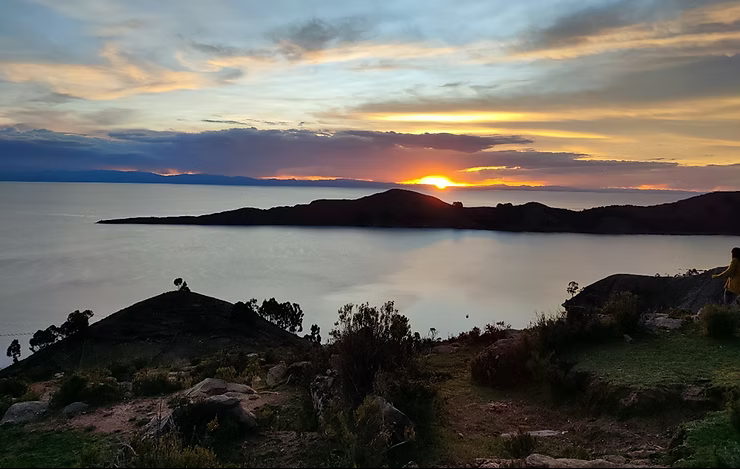
Guest blog: From Environmental Justice at Lake Titicaca to Nature-Based Solutions at Lake Victoria - Citizen Science as a Driver of Social Innovation
Karen
Oct. 4, 2024, noon
Citizen science is proving to be a powerful tool for promoting inclusive water resource management. By involving local communities in research initiatives, it not only generates valuable data but also raises awareness and empowers stakeholders to advocate for their environmental rights. At the Water and Climate Department of Vrije Universiteit Brussels (VUB), we are embracing citizen science to foster local engagement, collaborative learning, and empower communities to take an active role in sustainable resource management.
In the Bolivian Andes, we are partnering with the Subcentral Chojasivi, a coalition of four Aymaran indigenous communities along the shores of Lake Titicaca. For over two decades, these communities have suffered from severe water pollution caused by over 2 million tons of mining waste, 20 million cubic meters of urban and industrial wastewater, and 800 tons of solid urban waste from upstream the Katari River Basin. Once home to thriving fisheries, the river now shows no signs of fish life, with younger generations having never seen a fish in its waters. The river has become eutrophic, with dangerously high pollution levels, resulting in profound environmental injustices that threaten food security, water and sanitation, and public health.
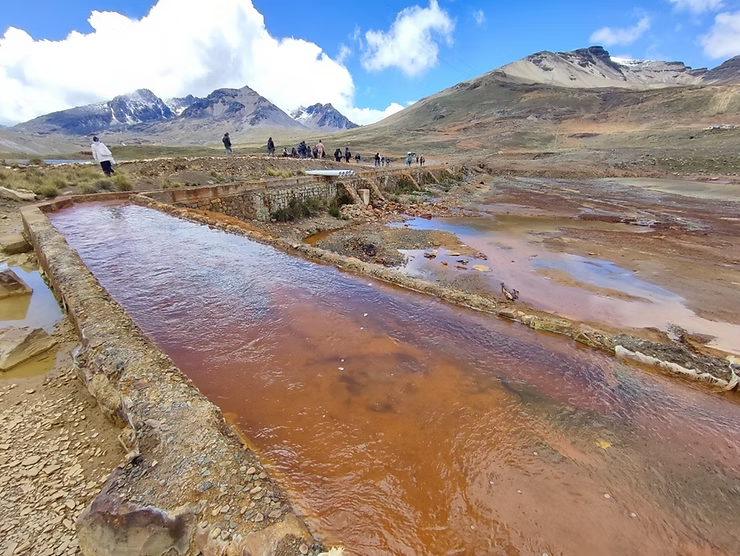 Acid Mine Drainage, Milluni Valley, Katari River Basin (Bolivia)
Acid Mine Drainage, Milluni Valley, Katari River Basin (Bolivia)
The citizen science project is empowering the indigenous communities of Chojasivi through water quality monitoring for environmental justice advocacy. Although water quality monitoring is often seen as highly sophisticated and technical process, the project explores collaborative learning by working with high school students from local villages to develop skills in water quality testing.
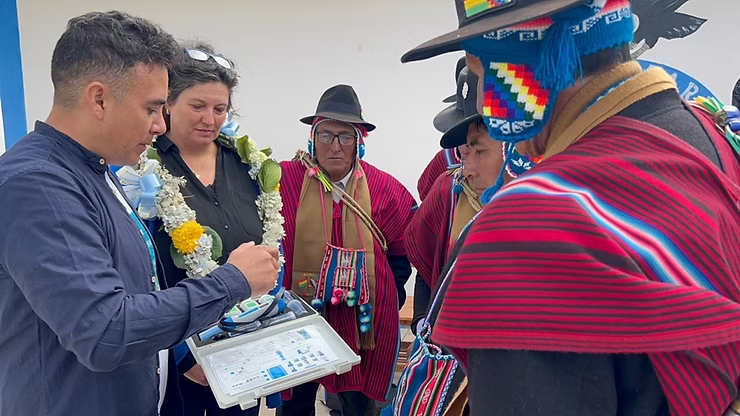 Local indigenous authorities from Lake Titicaca engaged in discussions on water quality assessment methods.
Local indigenous authorities from Lake Titicaca engaged in discussions on water quality assessment methods.
Additionally, in alliance with the Bolivian Catholic University, participatory workshops revealed water quality indicators meaning and their connection to pollution sources. After five months of monitoring, the students presented their findings to other community members in a public event, sparking discussions about water quality deterioration and the need for environmental justice advocacy.
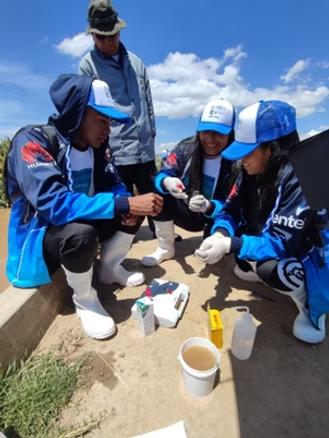
High school students from Chojasivi implementing water quality monitoring.
In East Africa, our efforts are centered on the lower Yala River Basin, a critical tributary of Lake Victoria. Despite the escalating impacts of agriculture, deforestation, and urbanization in the upper reaches of the Yala River, the 176-square kilometer Yala Swamp, located near the river's mouth, remains a vital ecosystem. This wetland serves as a natural filter, safeguarding Lake Victoria from water quality degradation. As a biodiversity hotspot, the Yala Swamp provides additional essential ecosystem services to local communities, including water purification.
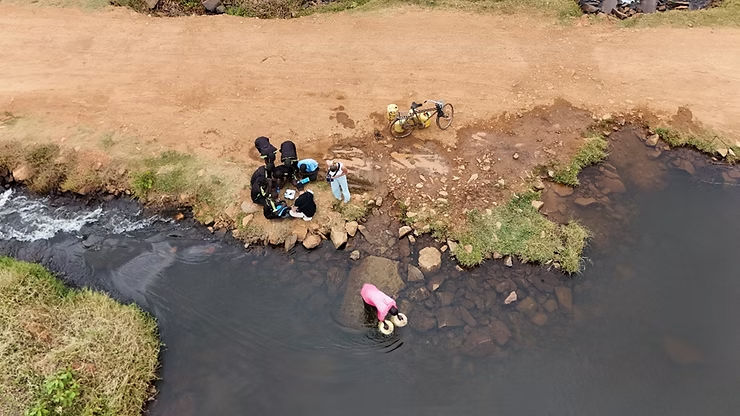 Outlet area, Yala Swamp
Outlet area, Yala Swamp
However, the Yala Swamp is increasingly threatened by expanding human settlements, prompting local authorities to seek sustainable management strategies. Through a citizen science project in collaboration with the rural communities of Barkanyango and Usenge, we aim to investigate water quality dynamics within the swamp and cultivate a renewed appreciation for its invaluable ecosystem services.
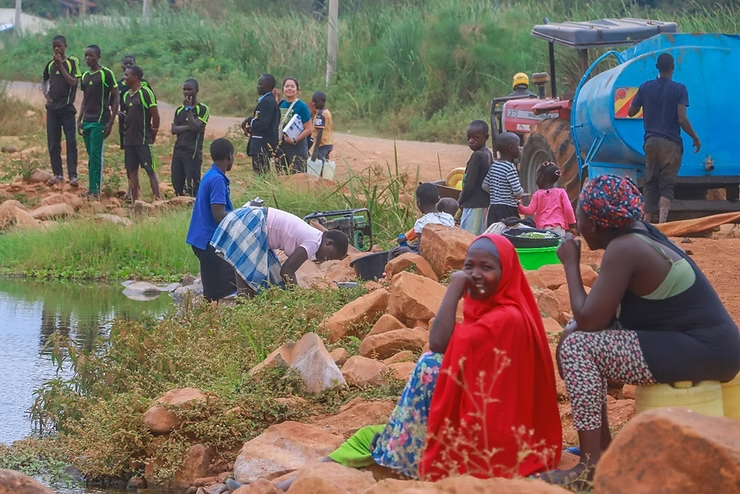
Local community members collecting water, Yala swamp
High school students from these communities are actively engaged in data collection, mentored by young facilitators from Jaramogi Oginga Odinga University of Science and Technology, who facilitate participatory learning experiences. Following the 10-month water quality monitoring campaign, the project will implement a workshop that brings together community members from both upstream and downstream regions, local officials, academic institutions, and non-governmental organizations to discuss the findings and devise potential conservation strategies for this critical natural resource.
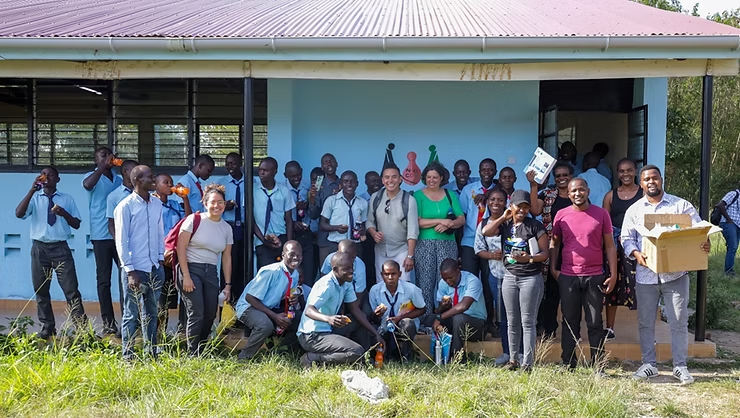
We are soon launching new initiatives in Cuba and Rwanda promoting inclusive governance of water and other natural resources, while helping to reduce the global water quality data gap. These projects are implemented under the AXA Chair on Water Quality And Global Change, the UNESCO Chair on Open Water Science and Education and the Global Minds Program from VLIR UOS.
Contact Persons:
Afnan Agramont, afnan.agramont.akiyama@vub.be
Analy Baltodano, baltodano.martinez.analy@vub.be
Ann van Griensven, ann.van.griensven@vub.be